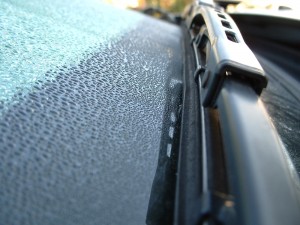Posted on 9/2/2014

Most people underestimate the value in caring for their windshield wipers, until it’s too late. With weak windshield wipers, a sudden storm can leave you in serious trouble. The truth of the matter is that your wipers should always be in excellent condition before you are in serious need of them. Keeping your windshield clean and your wipers in top shape gives you the ability to see clearly what is going on around you on the road. Clear visibility on the road can be a life saver. That’s why taking the time to think about preventive maintenance on your windshield wiper blades is critical to safe driving. Between snow storms, rain, bugs and debris that build up on your windshield, your wipers do a lot of work. The standard wiper blade wears out quickly. The rubber on the blade can begin to wear down as early as six months. For preventative maintenance we suggest that you change the wiper blades at least once a year. The best time t ... read more
Posted on 9/2/2014

Summer is on the way out, fall is standing by, and winter seems like a long time away. But it will be here soon and before long we’ll be watching the snow fall, hearing the sleet clatter, or shudder as ice coats the street. This when you need a place to put your car. How about the garage? Oh wait, you spent the summer piling water skis, bikes, camping gear, golf clubs and kiddie pools in it and now you can barely see from one side to the other much less put a car in there. It’s time to get organized and fall is a great time to do it. It’s not hard to make room and it will take some time. But it can be done. Maximize space with some good storage shelves, cabinets or pegboards. Hang ladders on hooks screwed into the walls. Bikes and scooters can be place there as well. Shelves that can be moved around are also a great idea as you may want to add or remove storage. Consider using the spa ... read more
Posted on 9/2/2014
You may only think about your vehicle’s air conditioning system in the summer time when you need it the most, but here are a few pieces of information that will help keep you cool when summer rolls around: Your air conditioning system comes on when you turn on your defrost. This means you are using FREON. You should have your air conditioning checked in the winter as well as summer. In Michigan, they do more air conditioning services in the winter than in the summer. One sign that tells you it is time to check your A/C is when your windows do not defrost well. Running with low Freon can damage your air conditioning system. One of the reasons you can be low on Freon when summer rolls around is that you have been using it throughout the winter months, every time the defrost is on! Bring your vehicle in to Sallas Auto Repair today and let us inspect your air conditioning. You’ll be glad you did when those sunny days return
Posted on 9/2/2014
Do you hear loud noises under the hood when you turn on your air conditioner? Do you only get cool air sporadically? If so, it is time to get your air conditioner checked. It’s real easy to take your car’s air conditioner for granted. Just push the right buttons and out comes cool, dry, clean air. But your air conditioning system needs attention from time to time to help it keep its cool. When most people hear the words “air conditioning problems”, it sends a shiver up their spine. That is because the air conditioning system is fairly complex. It has a lot of parts and when it’s broken, it’s expensive to repair. What things can we do to prevent air conditioning breakdowns? A common cause of air conditioning failure is leaks. Water and air can leak into the system. The system doesn’t work as well with air in it. And water can cause rust that leads to damage of the A/C components. Also, refrigerant, the stuff that makes the air cold, can leak out, reducing the efficiency of the system ... read more
Posted on 9/2/2014

It may seem like summer was just here and already we’re saying hello to Christmas and winter weather. And with snow and ice brings driving in snow and ice and that can be an unnerving, and potentially dangerous, experience. But knowing how to handle a car on icy roads can keep you and your family safe on the way to grandma’s house. First of all keeping your car in good shape is critical to safe driving in winter. Good tires with proper pressure, relatively new windshield wiper blades and a full washer reservoir will help when the snow, ice and slush start to fall. An emergency kit is also a good idea if you plan to drive a long distance on the highway. Clean your car before you head out. Sweep off snow and scrape ice from the entire surface of your car before you drive away. Flying ice and snow can be hazardous for other drivers around you. And now you’re driving and condi ... read more